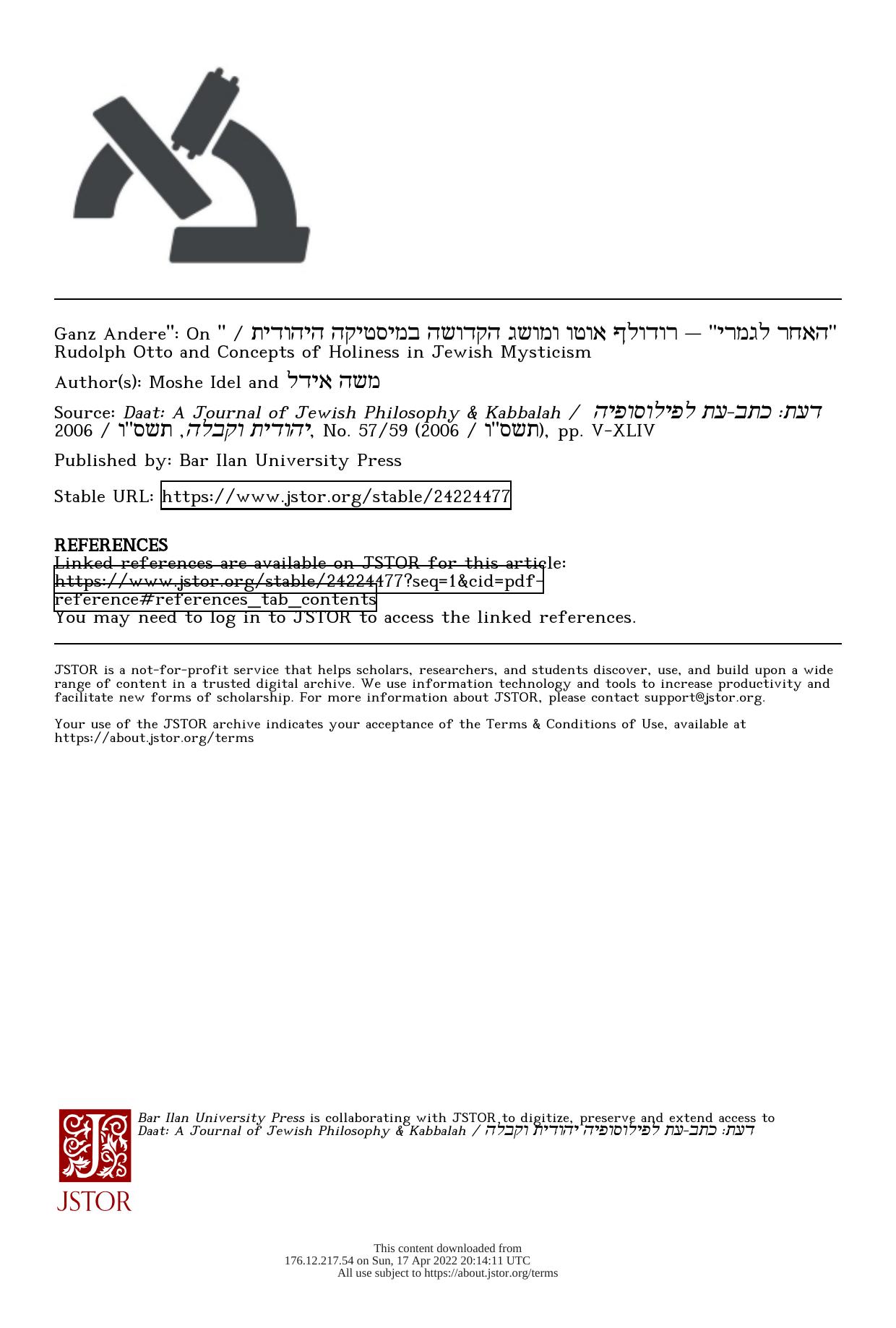
"האחר לגמרי" — רודולף אוטו ומושג הקדושה במיסטיקה היהודית / "Ganz Andere": On Rudolph Otto and Concepts of Holiness in Jewish Mysticism PDF
Preview "האחר לגמרי" — רודולף אוטו ומושג הקדושה במיסטיקה היהודית / "Ganz Andere": On Rudolph Otto and Concepts of Holiness in Jewish Mysticism
A perusal of the writings of three of the most influential scholars of the twentieth century, Rudolph Otto, Mircea Eliade and Gershom Scholem, may exemplify the existence of affinities between the ways in which, on the one hand, they described religion as scholars, and the manner in which they experienced it, on the other hand. It is certainly hard to decide what came first: their personal experiences and convictions as a source for their scholarship, or vice-versa. Perhaps, we may speak about a circular motion, in which each aspect of someone's spiritual life do foster the other. However, let me be properly understood: each of the scholars came from a specific type of religion, and we assume that the peculiarity of that religion had a certain impact on the manner in which the holy has been imagined.
In the following we shall focus on Otto's theory of the holy since it precedes the widespread views of both Eliade and Scholem, and it left an indelible impact on the way in which holiness has been imagined in modern scholarship of religion, including Judaism.1 His specific understanding of the category of holy constituted departing points for both appropriations and critiques, and this is particularly the case insofar as scholarship in Jewish mysticism is concerned.
